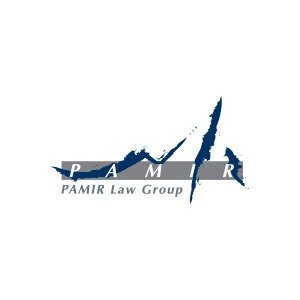Best Water Law Lawyers in Taiwan
Share your needs with us, get contacted by law firms.
Free. Takes 2 min.
Or refine your search by selecting a city:
List of the best lawyers in Taiwan
About Water Law in Taiwan
Water law in Taiwan is a specialized area of law that regulates the ownership, use, conservation, and protection of water resources throughout the country. Its primary statute is the Water Act, complemented by related environmental and land-use laws. These laws govern surface and groundwater usage, allocation rights, pollution prevention, and water management practices to ensure sustainable use and equitable distribution of water resources for residential, agricultural, industrial, and ecological purposes.
Why You May Need a Lawyer
Legal issues involving water can be complex due to the intersection of individual rights, public interests, and environmental regulations. Common situations where legal assistance in Water Law might be necessary include:
- Disputes over water rights or allocation between individuals, businesses, or neighboring properties
- Allegations of illegal water usage or diversion
- Obtaining permits for groundwater extraction or large-scale water usage
- Compliance with pollution control measures and water conservation requirements
- Challenging government enforcement actions, fines, or administrative penalties
- Water quality disputes related to development projects or industrial operations
- Land development issues affecting water sources or flow
- Participation in public hearings or consultations regarding water resource management
- Defending against claims of environmental harm or damage to public water sources
- Engaging in transactions involving land and water rights
Local Laws Overview
Water Law in Taiwan is primarily governed by the Water Act, which sets the legal framework for water resources management. Key aspects of the law include:
- All water resources, including surface water, groundwater, lakes, rivers, and reservoirs, are considered state-owned assets.
- Water rights are separated from land ownership. To use water, individuals and organizations must apply for water rights or usage permits through local water authorities.
- The government distinguishes between domestic, agricultural, and industrial use, with different priorities and requirements for each category.
- Strict regulations exist for water pollution control, including standards for wastewater discharge and penalties for violations.
- Groundwater extraction is tightly regulated to prevent overuse and subsidence, and often requires specific permits and adherence to sustainable quotas.
- Public participation and environmental impact assessments are required for large-scale projects affecting water resources.
- Enforcement actions, such as fines and orders to restore damaged resources, are common mechanisms for compliance.
Frequently Asked Questions
What is required to legally use water for agricultural or industrial purposes?
Anyone wishing to use water for agriculture, industry, or commercial needs must apply for a water usage permit and comply with allocation rules set by the Water Resources Agency or local governments.
Who owns water resources in Taiwan?
All water resources in Taiwan are owned by the state, not private individuals. Rights to use water can be granted through permits or licenses issued by government authorities.
How can I resolve a dispute with a neighbor over water usage?
Water disputes are typically handled by the local Water Resources Agency or through administrative mediation. If resolution cannot be reached, a lawsuit may be filed in the Administrative Court.
Is it legal to dig my own well for groundwater?
Digging wells and extracting groundwater almost always requires a permit. Unauthorized groundwater extraction is prohibited and subject to penalties.
What are the penalties for illegal water usage or pollution?
Penalties can include fines, mandatory restoration orders, suspension of business operations, or, in severe cases, criminal charges depending on the nature and impact of the violation.
Are there special regulations for water use during droughts?
Yes, authorities may impose temporary restrictions, prioritize allocation, or require reduced usage for non-essential purposes during drought conditions.
How can I participate in public consultations regarding water projects?
Major projects affecting water resources require public hearings and environmental impact assessments. These are typically announced through local governments and environmental agencies, where stakeholders can submit opinions or attend meetings.
What should I do if my water source is polluted by a nearby factory?
Report suspected pollution immediately to the Environmental Protection Administration or local authorities. Legal remedies may include administrative complaints, civil lawsuits for damages, or enforcement actions against the polluter.
Do water rights transfer automatically with sale of land?
No, water rights are distinct from land ownership. Any transfer or assignment of water usage permits must be approved by the relevant government authority and may not be automatic upon land sale.
Can foreign companies own water rights in Taiwan?
Foreign nationals and companies may apply for water usage permits subject to national regulations, but restrictions or additional approval requirements may apply, especially for large-scale or sensitive areas.
Additional Resources
If you need more information or assistance with Water Law in Taiwan, consider contacting or consulting the following organizations:
- Water Resources Agency, Ministry of Economic Affairs - Oversees water rights, permits, and resource planning
- Environmental Protection Administration - Handles water pollution issues and enforcement
- Local Water Management Offices - Address local water usage and disputes
- Taiwan Bar Association - Find qualified legal professionals with expertise in Water Law
- Academic and research institutions specializing in environmental law and water resource management
Next Steps
If you believe you need legal advice or assistance with a water-related issue in Taiwan:
- Document your situation thoroughly, including permits, correspondence, and evidence of the issue.
- Contact the relevant government agency for guidance or clarification of regulations.
- Consult a qualified lawyer who specializes in Water Law or environmental law in Taiwan. They can help interpret regulations, mediate disputes, represent you in administrative procedures, or initiate court proceedings if necessary.
- Stay informed about updates to the Water Act and related regulations, as water laws in Taiwan are periodically reviewed to address emerging challenges and changing environmental conditions.
Taking prompt action and seeking professional guidance will help you navigate the complexities of Water Law and protect your rights and interests under Taiwan’s legal framework.
Lawzana helps you find the best lawyers and law firms in Taiwan through a curated and pre-screened list of qualified legal professionals. Our platform offers rankings and detailed profiles of attorneys and law firms, allowing you to compare based on practice areas, including Water Law, experience, and client feedback.
Each profile includes a description of the firm's areas of practice, client reviews, team members and partners, year of establishment, spoken languages, office locations, contact information, social media presence, and any published articles or resources. Most firms on our platform speak English and are experienced in both local and international legal matters.
Get a quote from top-rated law firms in Taiwan — quickly, securely, and without unnecessary hassle.
Disclaimer:
The information provided on this page is for general informational purposes only and does not constitute legal advice. While we strive to ensure the accuracy and relevance of the content, legal information may change over time, and interpretations of the law can vary. You should always consult with a qualified legal professional for advice specific to your situation.
We disclaim all liability for actions taken or not taken based on the content of this page. If you believe any information is incorrect or outdated, please contact us, and we will review and update it where appropriate.
Browse water law law firms by city in Taiwan
Refine your search by selecting a city.
















